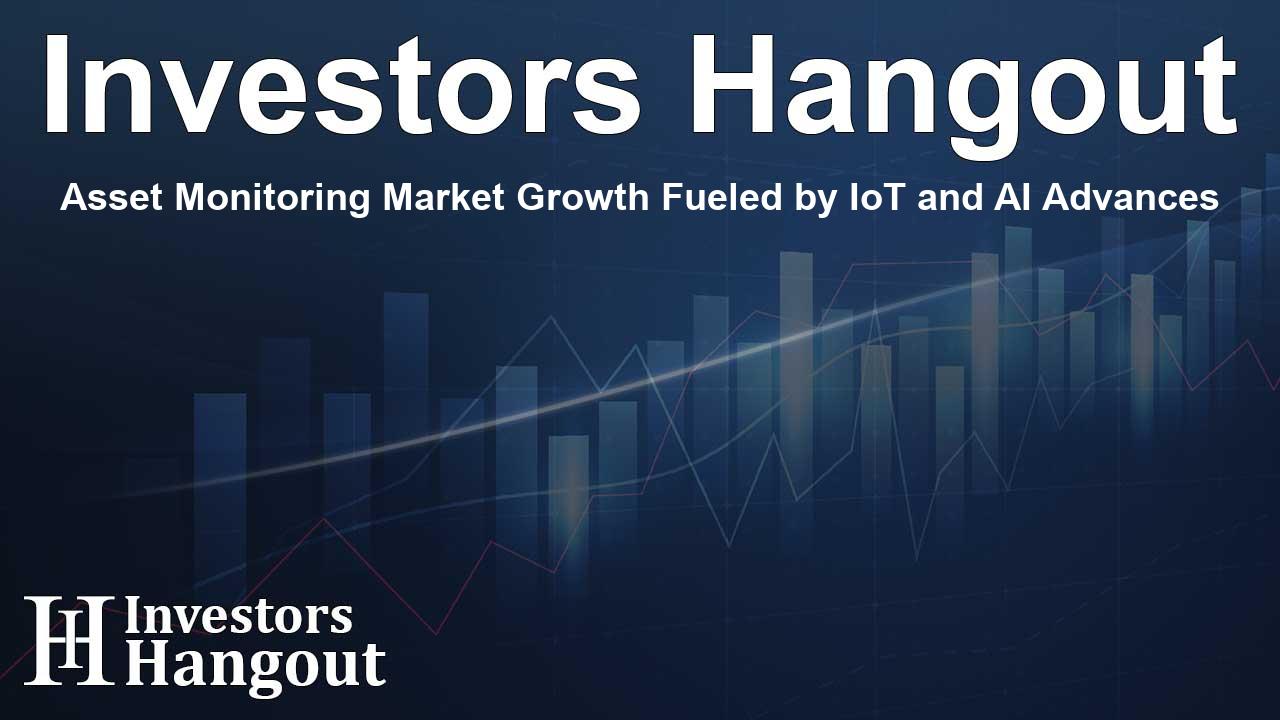Asset Monitoring Market Growth Fueled by IoT and AI Advances

Insight into the Expanding Asset Monitoring Market
The Global Asset Monitoring Market is experiencing remarkable growth due to favorable regulations supporting asset management and the increasing use of IoT-based solutions. Industries across the globe are adopting these innovations to enhance productivity and operational efficiency.
Driving Factors Behind Market Growth
The rapid expansion of the Asset Monitoring market is largely attributed to the prevalence of IoT, AI, and cloud technologies. These advancements enable businesses to perform real-time tracking, predictive maintenance, and streamline operations across various sectors such as manufacturing, energy, transportation, and healthcare. The projected market growth indicates a potential valuation exceeding USD 13 billion by 2037, underlining the critical role of innovative solutions in contemporary asset management.
IoT and AI Integration
As industries recognize the benefits of adopting IoT and AI technologies, the market for asset monitoring tools is evolving quickly. By allowing real-time data collection and performance analysis, these technologies help minimize downtime and enhance productivity. Major players, including IBM, General Electric (GE), Siemens AG, ABB Ltd., and Schneider Electric, are at the forefront of this transformation, offering a range of advanced solutions.
Government Support and Regulation
Government initiatives play a pivotal role in encouraging the integration of advanced asset management technologies. For instance, proposed upgrades to existing investment ordinances in various countries aim to increase technology adoption among asset managers. This regulatory support significantly elevates the demand for innovative monitoring systems and solutions, facilitating the monitoring and maintenance of assets to achieve sustainability goals.
Emerging Technologies Making an Impact
The landscape of asset monitoring is rapidly changing with the introduction of AI-powered tools tailored for enhanced efficiency. For instance, recent developments have led to the creation of AI-driven asset monitoring kits that enable near real-time analysis of performance without constant data transmission to cloud servers. These advancements permit manufacturers to maintain a comprehensive overview of their connected assets, leading to better management and operational insights.
The Role of 5G Technology
Another significant technological advancement is the implementation of 5G, which enhances remote asset monitoring thanks to its faster data transfer capabilities. This technology allows businesses to track their assets' locations and conditions more effectively, leading to superior operational efficiency and enhanced security measures against loss or theft. The integration of AI with 5G further empowers companies to analyze data from remote assets, optimize processes, and predict maintenance needs before issues arise.
Market Segmentation Insights
Analyzing the asset monitoring market underscores several critical segments. According to component classification, the market is divided into hardware, software, and services, with the hardware segment holding a dominant position. Enterprises are categorized based on size, with larger entities leading the market share, while specific sectors such as manufacturing and healthcare show notable demand for monitoring solutions.
Competitive Landscape and Key Players
The competitive landscape of the global Asset Monitoring Market features key players, including Asset Monitoring Solutions Limited, Yokogawa Electric Corp, and Emerson Electric Co. These firms are aggressively pursuing partnerships and developing cutting-edge technologies to differentiate their offerings and capture greater market share.
Conclusion: A Promising Future Ahead
As the demand for technologically competent asset management solutions continues to surge, stakeholders from various sectors will benefit from innovative asset monitoring tools. The Insights Partners’ recent reports provide valuable insights tailored for solution providers, system integrators, and end-users, enabling them to thrive in this evolving market landscape. As more companies adopt these advanced systems, the future looks incredibly promising for the global Asset Monitoring Market.
Frequently Asked Questions
What is the projected growth of the Asset Monitoring Market?
The Asset Monitoring Market is expected to reach over USD 13 billion by 2037, with a significant growth rate driven by technological adoption.
How does IoT influence the Asset Monitoring Market?
IoT enables real-time tracking and predictive maintenance, which enhances operational efficiency and reduces downtime across various industries.
What role does government regulation play in this market?
Government initiatives encourage the adoption of advanced asset management technologies, fostering demand for effective monitoring systems.
Which industries are most affected by asset monitoring solutions?
Key industries include manufacturing, energy, healthcare, and transportation, all benefiting from innovative asset monitoring solutions.
Who are the major players in the Asset Monitoring Market?
Key players include IBM, General Electric (GE), Siemens AG, ABB Ltd., and Schneider Electric, leading the market with advanced solutions.
About The Author
Contact Dominic Sanders privately here. Or send an email with ATTN: Dominic Sanders as the subject to contact@investorshangout.com.
About Investors Hangout
Investors Hangout is a leading online stock forum for financial discussion and learning, offering a wide range of free tools and resources. It draws in traders of all levels, who exchange market knowledge, investigate trading tactics, and keep an eye on industry developments in real time. Featuring financial articles, stock message boards, quotes, charts, company profiles, and live news updates. Through cooperative learning and a wealth of informational resources, it helps users from novices creating their first portfolios to experts honing their techniques. Join Investors Hangout today: https://investorshangout.com/
The content of this article is based on factual, publicly available information and does not represent legal, financial, or investment advice. Investors Hangout does not offer financial advice, and the author is not a licensed financial advisor. Consult a qualified advisor before making any financial or investment decisions based on this article. This article should not be considered advice to purchase, sell, or hold any securities or other investments. If any of the material provided here is inaccurate, please contact us for corrections.
